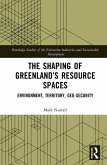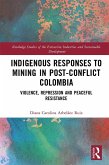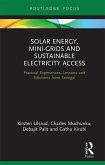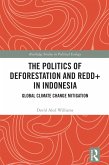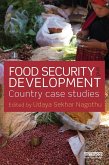Dieser Download kann aus rechtlichen Gründen nur mit Rechnungsadresse in A, B, BG, CY, CZ, D, DK, EW, E, FIN, F, GR, HR, H, IRL, I, LT, L, LR, M, NL, PL, P, R, S, SLO, SK ausgeliefert werden.
Thomas Hylland Eriksen, University of Oslo, Norway
'Based on excellent scholarship, Robert Pijpers demonstrates how a focus on the micro-politics of extraction within the context of Sierra Leone can facilitate understanding of wider global processes related to the promises and pitfalls of extraction. Through the use of ethnography, a nuanced understanding emerges of how different interests, power relations and political strategies are tied to extractive resources, shaping peoples' senses of belonging, hopes and expectations for better futures. A valuable contribution to the study of contemporary Africa, which I highly recommend.'
Eleanor Fisher, Nordic Africa Institute, Sweden
'Pijpers' immersive ethnography captures the everyday struggles, tensions, aspirations, ambitions and disappointments of those living in the orbit of Sierra Leone's iron belt, waiting for the revenues of the current millennial scramble for Africa's resources to trickle down. Pijpers vividly chronicles both the febrile energy and the precarity of life on the margins of mines. The sense of expectation that the boom has given rise to is over-shadowed by the elegiac portrait of bust precipitated with London Mining's bankruptcy on a distant continent with which Pijpers opens - dramatic irony to the (unfulfilled) expectation that unfold as the book progresses, and sobering reminder of the uneven and unpredictable boons of mining booms. Pijpers' ethnography upends the temporal logics of boom and bust that have for so long underwritten chronicles of extraction worldwide, juxtaposing the immediacy of daily struggles in the shadow of extraction, with the future hopes that mining investment stoke yet never deliver.'
Dinah Rajak, University of Sussex, UK
'Pijper's book on mining in Sierra Leone is really a book about so much else than mining: about economy, politics, law, but above all about human relations. In an exemplary way, it combines deep thematic expertise with a rich, finely tuned ethnography. The book should appeal to scholars from within many academic disciplines, but also to policy practitioners.'
Mats Utas, Uppsala University, Sweden




